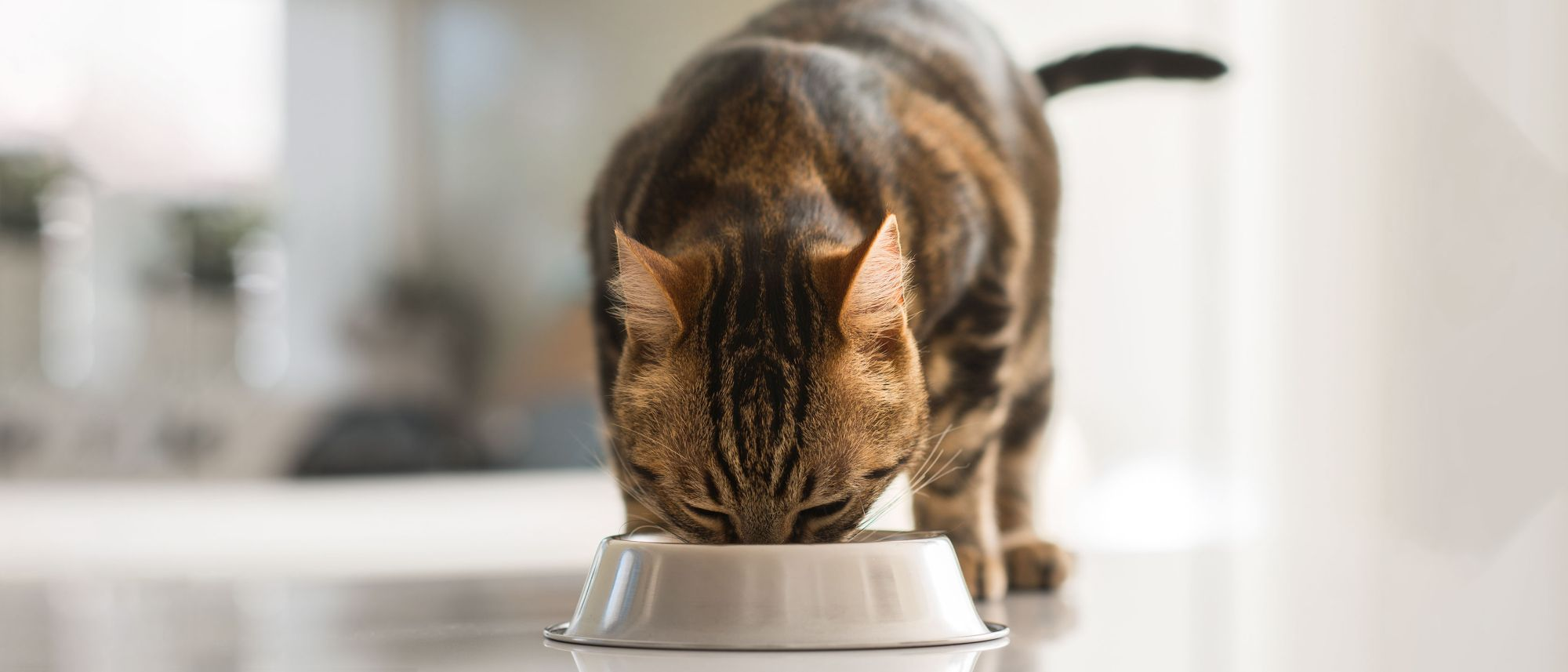What Is Causing My Cat’s Allergic Reaction – Food or the Environment?
Article

The immune system keeps a cat safe from disease. But some cats are susceptible to developing overactive immune systems that treat commonplace substances like they’re an attacker.
The body's response is an allergic reaction, and it can lead to several health issues, including allergic dermatitis.
Allergic reactions are triggered by a wide range of usually harmless substances, known as allergens. In this article, we’ll compare two of the most common allergens – food and environmental.
What Causes Environmental and Cat Food Allergies?
It’s not well understood, but it’s believed that some cats have a genetic predisposition to developing allergies.
As cats explore the world, they’ll encounter many potential allergens, from the dander in their bed to the protein in their food.
If a cat is prone to developing allergies, repeated exposure to these allergens can sensitize its immune system and trigger an allergic reaction.
What Is a Food Allergy?
A cat food allergy is an immune system response to something a cat eats, most frequently a source of protein like beef or fish.1 Cats may develop food allergies at any age, even to foods they’ve previously been exposed to.
Cat food allergies are less common than environmental allergies, but they can have severe health effects, so you should always contact your vet if you think your cat is allergic to food.

What Is An Environmental Allergy?
The skin acts as a barrier. It protects against injury and prevents harmful substances from entering a cat’s body. But an ineffective skin barrier can allow bacteria and certain airborne particles to break through. The resulting immune system response is known as an environmental allergy or atopy.Environmental allergens can be found inside and outside the home, and include things such as pollen, mold, dander, and house dust mites. Cats with environmental allergies may develop the skin condition atopic dermatitis.
What Are the Signs of Food and Environmental Allergies in Cats?
When a cat’s immune system reacts to an allergen, its skin becomes inflamed and itchy. This may present itself as:
- Persistent scratching and rubbing, particularly around the head and neck.
- Excessive licking, chewing or biting.
- Redness or a rash.
- Hair loss.
- Skin and ear infections.
- Darkened skin.
- Gastrointestinal issues like diarrhea and vomiting.
Excessive scratching and biting can cause a cat to develop open wounds, which risk secondary bacterial and yeast infections.
How Can I Tell If My Cat Has a Food or Environmental Allergy?
The signs of a food allergy are almost identical to those of an environmental allergy, so it’s extremely difficult to judge which one is the cause.Occasionally, there are additional signs that can help indicate the type of allergy. Cats with food allergies tend to display more severe signs than those with environmental allergies, for example, and they may be less responsive to specific veterinary management options, like steroids.
If the cat’s allergies are only present during certain months of the year, it may indicate a seasonal allergy to pollen. Unfortunately, this is not a reliable sign as non-seasonal allergies can also be aggravated by seasonal events.
A further challenge is that some cats develop both environmental allergies and an adverse food reaction – such as a food allergy. Because of this overlap, a veterinary diagnosis is always required for cat allergies.
How Will My Vet Diagnose An Allergy?
Your vet will observe your cat’s signs, conduct tests, and review their clinical history. Other health conditions have signs like allergies too, so your vet will want to rule those out.If food is thought to be a cause, your vet may recommend an elimination diet trial. This involves feeding your cat a specific diet, such as a hydrolyzed diet for around two months, with no other food, treats, or leftovers. After that time, your vet will reintroduce food allergens to see if they trigger a response.
If your vet is certain that food isn’t involved, and is confident that your cat has environmental allergies, they may decide to conduct skin and blood allergy tests to find out which environmental allergens are responsible for your cat’s allergies.
How Will My Vet Manage My Cat’s Allergy?
Your vet may recommend oral drugs, injectable medications, or topical remedies such as shampoos or creams to manage your cat’s skin or gastrointestinal issues.
They’ll also take steps to reduce the possibility of a future flare-up. These recommendations will vary based on whether your cat has a food or environmental allergy.
Food Allergy Management for Cats
A vet will usually suggest a change in diet for a cat with food allergies, and there are several options they may recommend, including a hydrolyzed diet or a novel protein diet.These diets use sources of protein that are less likely to trigger an allergic reaction and include nutrients that may ease skin and gastrointestinal signs in cats.
To learn more, see Nutrition & Support for Cats with Food Allergies.
Environmental and Seasonal Allergy Management for Cats
Once the skin tests have identified the environmental allergen your cat is reactive to, you can make changes around your home to try and limit your cat’s exposure to it.Your vet may also suggest remedies such as allergy shots (hyposensitization), which can change a cat’s immune system to make it less reactive to specific allergens.
To discover more, read our article on Environmental & Seasonal Allergies in Cats.
Can a Food or Environmental Allergy Return?
There’s no cure for allergies, but there are several things you can do to control your cat’s allergies and give them a good quality of life.If your cat has a food allergy, it’ll probably need to stay on a special diet for life. Cats with environmental allergies will also need continual management to control their signs and reduce the chances of a reaction, but there are several options available, and your vet can help you find the best option for your cat.
If you have questions about allergies or recognize any of the cat allergy signs we’ve discussed here, arrange an appointment with your vet.
References:
1 Mueller R.S., Olivry T, Prélaud P. Critically appraised topic on adverse food reactions of companion animals (2): common food allergen sources in dogs and cats. BMC Vet Res. 2016; 12:9
Related Articles
Like & share this page